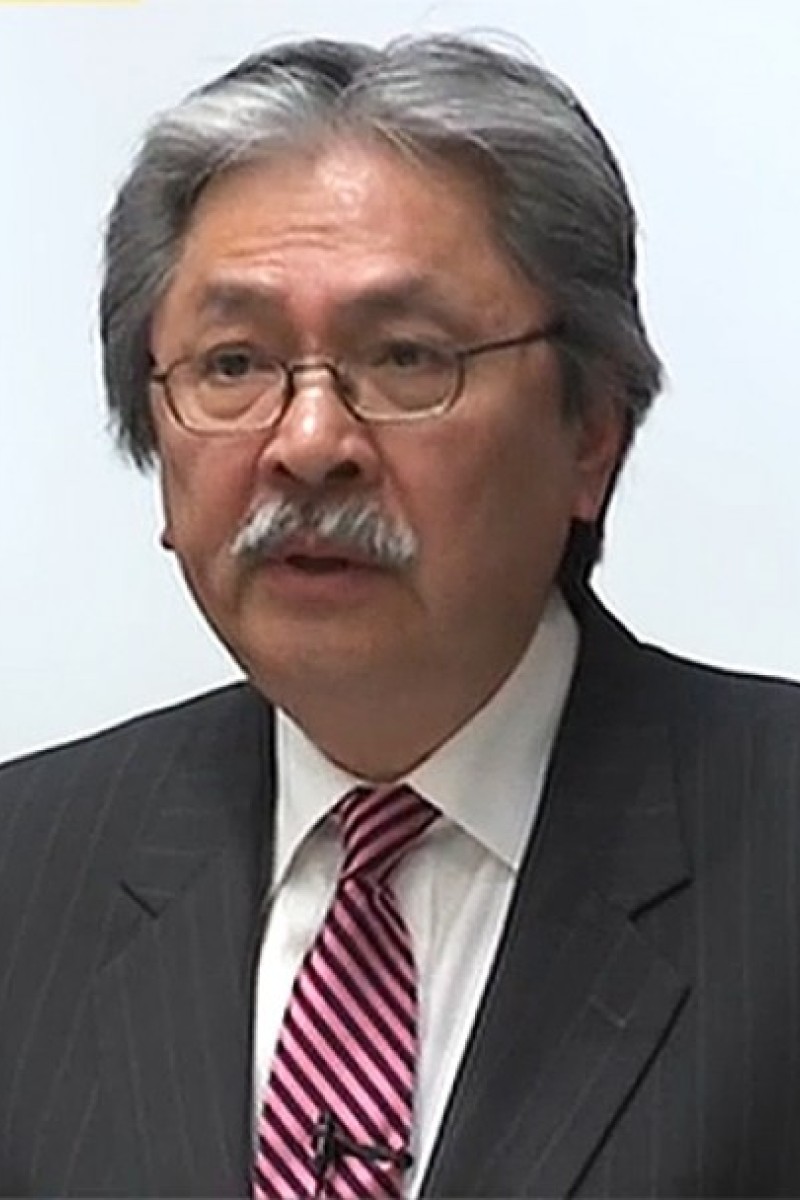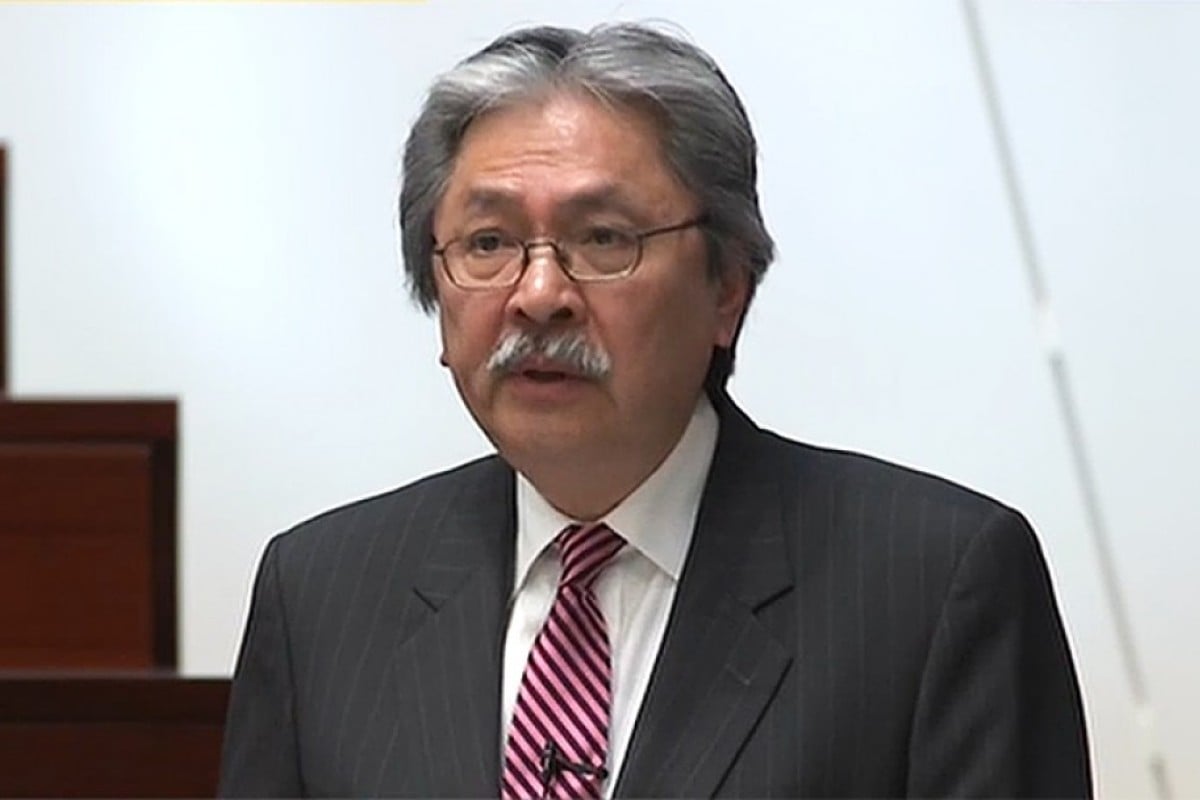
UPDATED: John Tsang delivers the 2016 Hong Kong budget - where will the money go?
Young Post will be following the Hong Kong budget as it's being detailed today. Stay tuned for live updates
 John Tsang delivers the annual budget.
John Tsang delivers the annual budget.John Tsang Chun-wah delivers the 2016 budget speech today. Hong Kong is currently experiencing a slowing economy and growing tension in society. Tsang is offering a relief package to jump start domestion consumption and help industries, but also to get rid of waivers for public housing rents. He will also reveal how the budget plans to put into action his ninth budget speech against the backdrop of a slowing Hong Kong economy and growing tensions in society. While promising to offer a relief package to boost domestic consumption and help industries in the economic doldrums, the financial secretary is also planning to scrap waivers for public housing rents. He will also unveil measures to put into action Chief Executive Leung Chun-ying’s blueprint to boost the development of the innovation and technology sector.
Some of the sectors the budget proposes to help:
- Education
- Information and Technology
- Fashion and Design
- Film Industry
- Social Welfare
- Tourism
[UPDATE: Wednesday, Feb 25 - 11:00]
The budget is not progressive enough to support education development, says education lawmaker Ip Kin-yuen. “It didn’t mention any financial support for minority students," says Ip. "It also didn’t solve any core problems that exist in the education sector, and have existed for a long time. For example, many university students graduate in debt, with huge student loans to pay off. Yet, the government didn’t waive or reduce their tuition fee.”
Oscar Ho Hing-kay, Chinese University of Hong Kong’s professional consultant on cultural policy says the government’s food truck scheme won't help promote local food culture. “A food truck, and its parking fees, usually costs a huge amount of money so won't be easy for grassroot business people to take the business," he argues, "It would only be dominated by well-established restaurant chains. Whereas the local food hawkers offers a unique eating habit and it has nothing to do with the restaurant chains and food truck scheme,’ says Ho.
The feedback isn't all bad though. Professor Pang Lai-kwan, also of CUHK, who studies cultural and religious studies says the local film industry would appreciate the government’s investment in the production of Cantonese films. “It’s great that Tsang highlighted the importance of Cantonese, and promoted locally-produced Cantonese films,” says Pang.
[UPDATE: Wednesday, Feb 24 - 13:00]
Speaking to the media after Tsang’s speech, executive council convenor Lam Woon-kwong said he was touched by Tsang’s concluding remarks. “We're about the same age and lived through the same tough times (and challenges and this city has faced). I think he was speaking for a lot of Hong Kong people who have walked a similar road,
This is a cautious but good budget. Tsang does his best to use reserves to help the elderly and low-income families.”
In the meantime, Chief Secretary Carrie Lam Cheung Yuet-ngor calls for pan-democrats to pass the Appropriation Bill for the budget plans, saying that spending on social welfare has increased by 40 per cent compared with 2012-13. It's 19 per cent of total government spending, and is the second biggest expenditure behind education.
“Don't just focus on how many benefits was given out,” says Lam Woon-kwong, who stresses that it’s more important how the government is trying to manage in these financially difficult times.
[UPDATE: Wednesday, Feb 24 - 12:47]
Total government expenditure in 2016-17 is estimated to reach $490 billion. Public expenditure will be equivalent to 21.2 per cent of GDP. Total government revenue is estimated to be $500 billion.
The average growth rate is forecasted to be 3 per cent every year from 2017 to 2020, while the underlying inflation rate is expected to average 2.5 per cent.
In his concluding remarks, Tsang says he believes Hongkongers have survived tough times in the past, and this shows that they “have both the ability and the wisdom to cope with the problems that we are facing today." Also, that he had set up a Facebook account last year which allows him another way to observe people's daily lives and to hear their voices. He is concerned that tension and turbulence are mounting in Hong Kong, but points out it's important to have the determination to resolve these conflicts.
[UPDATE: Wednesday, Feb 24 - 12:21]
The government expects to spend HK$66 billion on social welfare for 2016-17, accounting for 19 per cent of recurrent government expenditure and has doubled compared with ten years ago.
“Our society is ageing, and this has far-reaching implications for our future public finances,” says Tsang. He has earmarked HK$50 billion to improve the retirement protection for the elderly in need. And he points out that any retirement protection scheme must be financially sustainable to avoid shifting the significant retirement protection expenses to future generations. He hopes society will keep an open mind and work together to explore sustainable plans for Hong Kong.
With a relatively sound fiscal position, the government’s fiscal reserves are estimated to be HK$860 billion by the end of March, equivalent to 24 months of government expenditure.
[UPDATE: Wednesday, Feb 24 - 12:06]
The government will continue to arrange internship opportunities for students.
To nurture IT professionals for the development of Hong Kong, the Enriched IT Programme, which offers intensive training, was launched in Secondary Schools last year. IBM, Google, Microsoft and Huawei are on the steering committee to coordinate and promote this programme. In the next two years, the government will continue to collaborate with the industry to organise internship programmes and activities.
Future Leaders in Finance Internship Programme, a summer internship will be expanded this year under the government’s subsidies to send 40 local university students on internship programmes in financial institutions in Beijing.
Further, 30 local university students will be subsidised to join an exchange scheme in Shanghai this year.
A subsidy scheme of HK$960 million launched this academic year for students pursuing self-financing undergraduate programmes in selected disciplines, including healthcare, architecture and engineering, testing and certification, creative industries, logistics, and tourism and hospitality.
[UPDATE: Wednesday, Feb 24 - 11:48]
300 university students will have the chance to join Fintech training camps at universities overseas under the Innovation and Technology Fund’s Enterprise Support Scheme.
The government will introduce and enhance various funding schemes to encourage Research and Development (R&D) and applied technology. This will include the Technology Start-up Support Scheme for Universities, which will assist technology start-ups established by university teams in commercialising research results.
In fashion and design, the government will set up a resource centre to provide technical training and support for young designers. In the film industry, the government will inject HK$200 million in the Film Development Fund (FDF) to promote local filmmaking and encourage young people to join the industry.
Tsang points out that local Cantonese films is a key component of local culture and an additional HK$20 million will be injected into the FDF to subsidise distribution and publicity of locally-made Cantonese films.
[UPDATE: Wednesday, Feb 24 - 11:17]
John Tsang addresses the recent February 8 Mong Kok riot as he sets out his budget at Legco, saying the it has increased tensions in society and made Hong Kong “strange” to him. The violence has hurt the city’s core values, Tsang says.
The growth of the Hong Kong economy slowed down during 2015: the annual increase was 2.4 per cent, making 2015 the fourth consecutive year that our economic growth was lower than the annual average of 3.4 per cent over the past ten years.
To boost tourism and to enrich the local food culture, Tsang said the government will embark on a pilot scheme on food trucks this year to increase the number of designated spaces for the food trucks to 16.